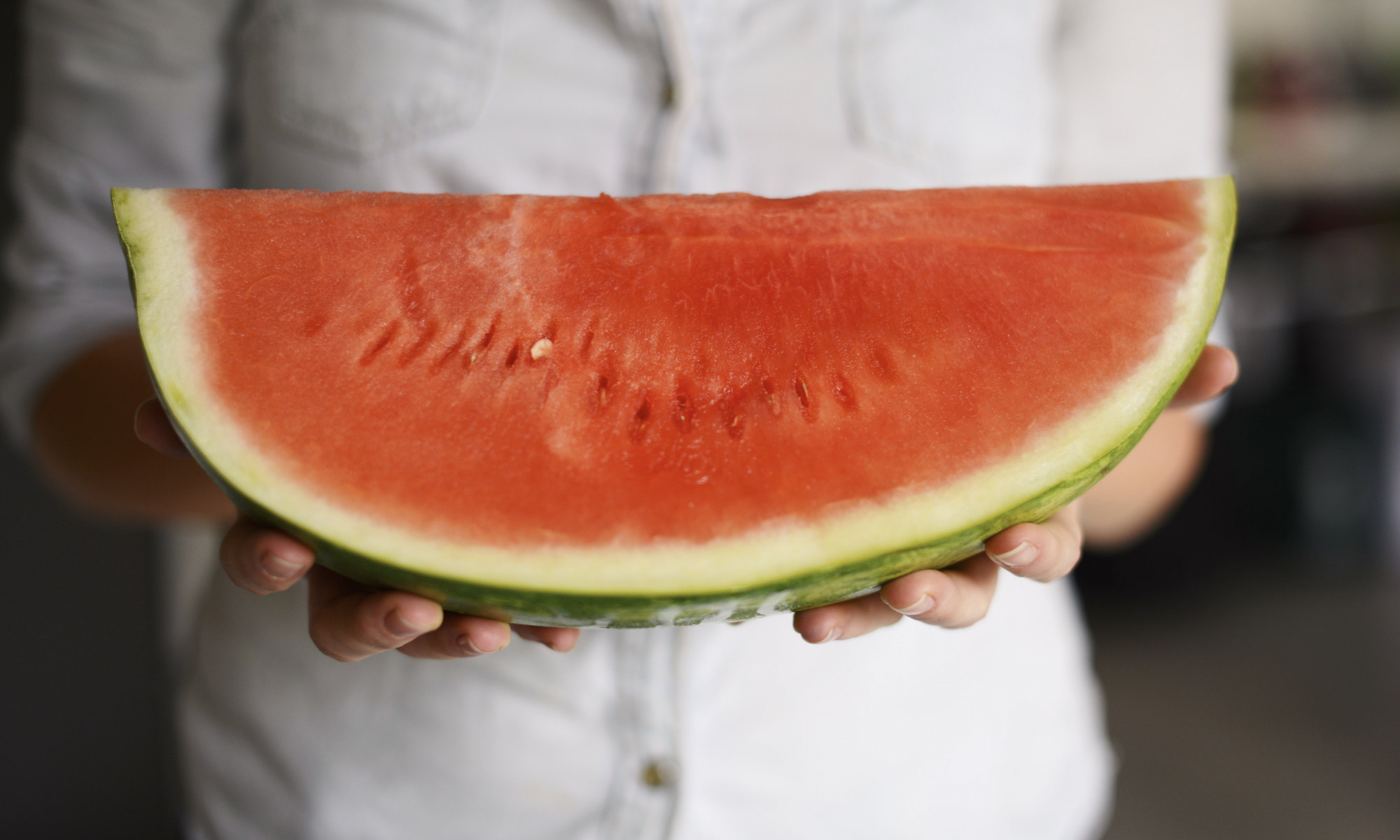
Did you know watermelon can credit its vibrant red hue to a carotenoid called lycopene? Grab a slice (or two) to kick off National Watermelon Month on a bright note with this nutrient-rich fruit.
Watermelon is a lycopene leader, containing higher levels of lycopene than any other fresh fruit or vegetable (12.7 mg per 2-cup serving).1 Lycopene is a carotenoid and has been studied for its potential role in reducing blood pressure (in people with prehypertension or hypertension). Whether eating watermelon will achieve these results in the general population is not yet known. Further research is needed with larger sample sizes and longer duration is needed to fully determine the clinical implications.
The National Cancer Institute’s Prostate Cancer, Nutrition, and Dietary Supplements (PDQ®) information summary says that, “Reviews done in 2015 and 2017 analyzed studies of lycopene in the diet and lycopene levels in the blood. Both reviews found that higher lycopene intake was linked with lower prostate cancer risk and that higher blood levels of lycopene were also linked with lower prostate cancer risk.”2
Research results are inconsistent in these areas and randomized controlled trials have not demonstrated a consistent benefit to consuming lycopene from food or supplements. That said, there is a large and growing body of research into the mechanistic and dose-relational effects of lycopene consumption on potential human health benefits.
Although more research and clinical trials are needed, systematic reviews and meta-analyses link carotenoids, like lycopene, to a role in maintaining healthy skin.3,4
Great news for summer! While not a substitution for sunscreen, lycopene in watermelon is an antioxidant that is being studied for its role in sun protection when eaten.
References:
- Naz A, Butt MS, Sultan MT, Qayyum MM, Niaz RS. Watermelon lycopene and allied health claims. EXCLI J. 2014;13:650-60.
- PDQ® Integrative, Alternative, and Complementary Therapies Editorial Board. PDQ Prostate Cancer, Nutrition, and Dietary Supplements. Bethesda, MD: National Cancer Institute. Available at: https://www.cancer.gov/about-cancer/treatment/cam/patient/prostate-supplements-pdq. Accessed March 25, 2019 [PMID: 26389501].
- Nwanodi O. Skin Protective Nutraceuticals: The Current Evidence in Brief. Healthcare. 2018; 6(2):40.
- Stahl W, Sies H. β-Carotene and other carotenoids in protection from sunlight. Am J Clin Nutr 2012; 96 (5): 1179S-84S. doi: 10.3945/ajcn.112.034819.

Comments
My self I could be a good watermelon producer the great challenge is where to sell. please assist me as in so doing you can be my buck up sprig